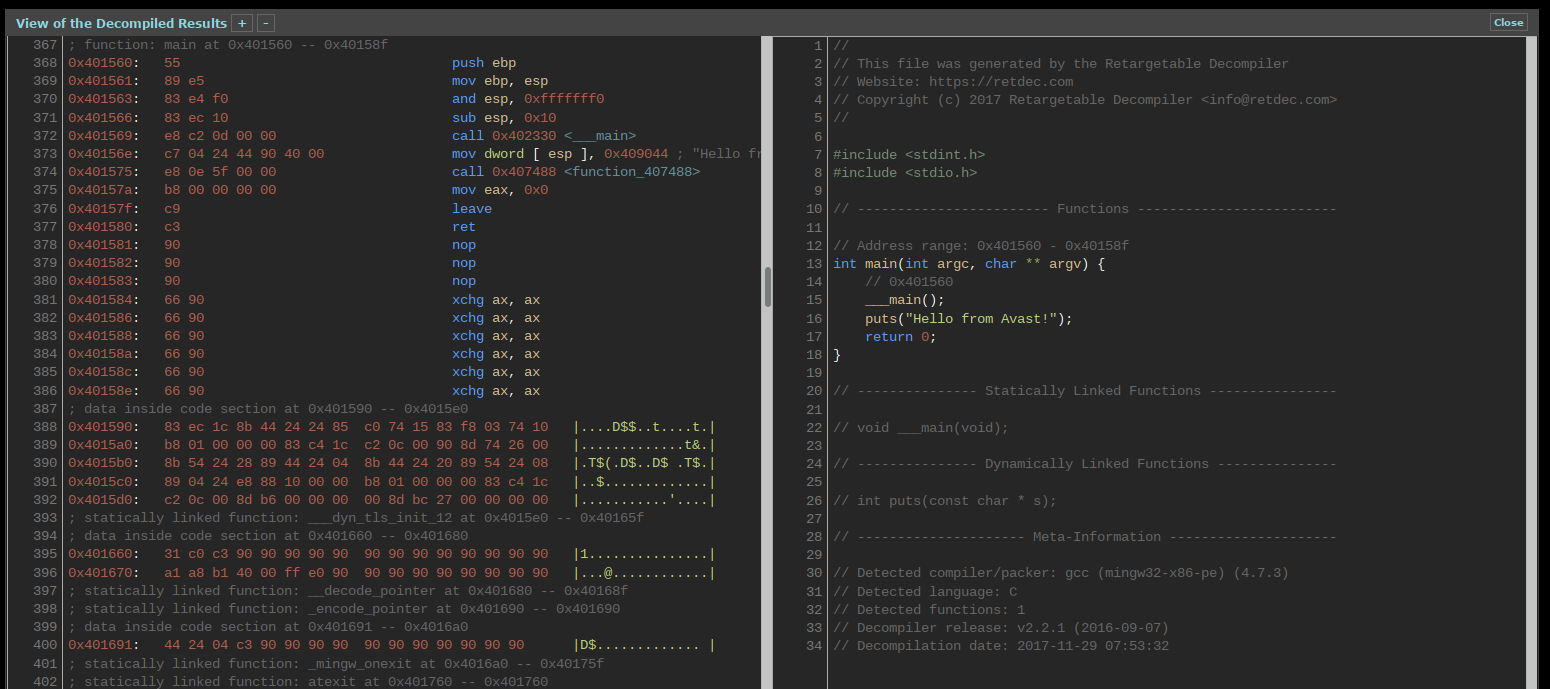
Keeping up with the latest malware and virus threats is a daunting task, even for industry professionals. Any device connected to the Internet is a target for being infected and abused. In order to stop attacks from happening, there needs to be an understanding of how they work so that a prevention method can be developed.
To help with the reverse engineering of malware, Avast has released an open-source version of its machine-code decompiler, RetDec, that has been under development for over seven years. RetDec supports a variety of architectures aside from those used on traditional desktops including ARM, PIC32, PowerPC and MIPS.
As Internet of Things devices proliferate throughout our homes and inside private businesses, being able to effectively analyze the code running on all of these new devices becomes a necessity to ensure security. In addition to the open-source version found on GitHub, RetDec is also being provided as a web service.
Simply upload a supported executable or machine code and get a reasonably rebuilt version of the source code. It is not possible to retrieve the exact original code of any executable compiled to machine code but obtaining a working or almost working copy of equivalent code can greatly expedite the reverse engineering of software.

For any curious developers out there, a REST API is also provided to allow third-party applications to use the decompilation service. A plugin for IDA disassembler is also available for those experienced with decompiling software.
https://www.techspot.com/news/72296-avast-launches-open-source-decompiler-machine-code.html